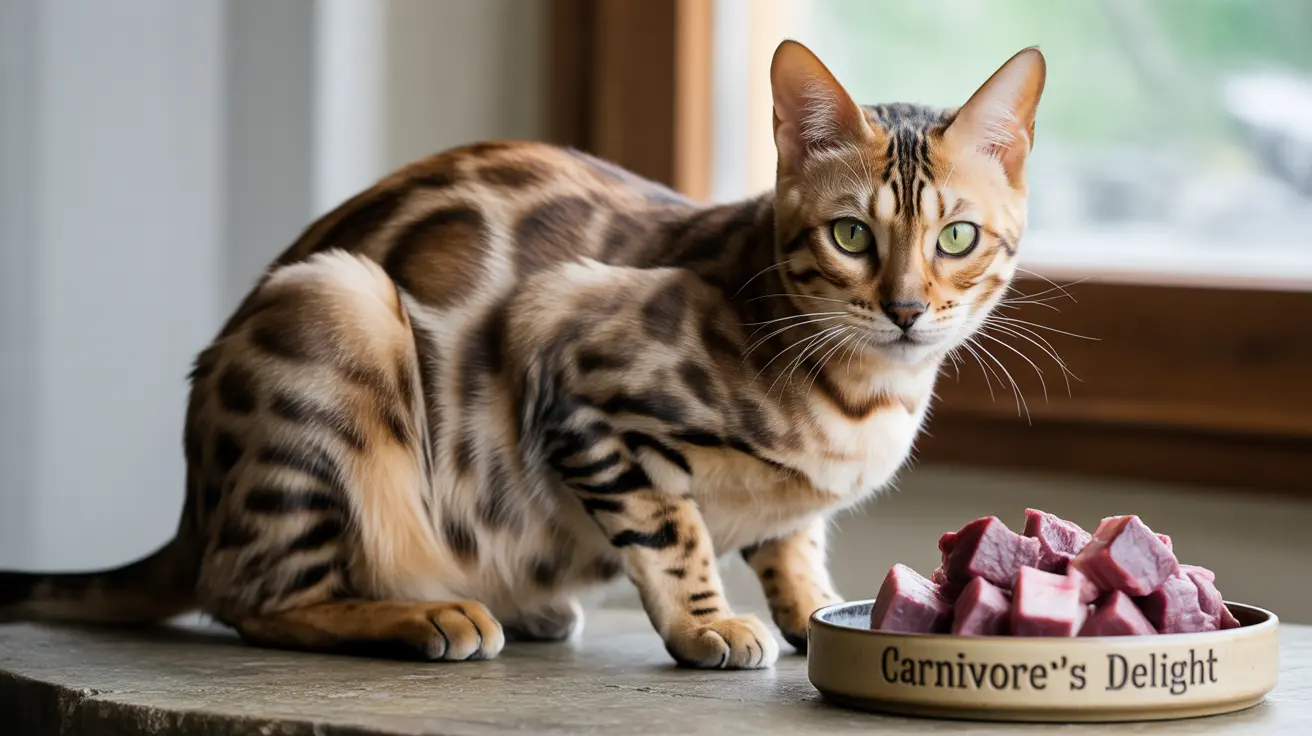If you've ever wondered whether cats are omnivores like dogs or humans, the answer might surprise you. Cats are actually obligate carnivores, meaning they require a diet primarily consisting of meat to survive and thrive. This fundamental aspect of feline biology sets them apart from omnivorous pets and has important implications for their dietary needs and health.
Understanding your cat's true dietary nature is crucial for providing optimal nutrition and avoiding potentially harmful feeding practices. Let's explore why cats are strictly carnivorous and what this means for their diet and well-being.
The Science Behind Cats' Carnivorous Nature
Cats have evolved as specialized hunters with bodies perfectly adapted for a meat-based diet. Their short digestive tract, specialized teeth, and unique metabolic requirements all point to their carnivorous nature. Unlike omnivores, cats cannot effectively process or obtain necessary nutrients from plant-based sources.
Key biological features that make cats obligate carnivores include:
- Sharp, pointed teeth designed for tearing meat
- A shortened digestive system optimized for processing animal protein
- Specific enzyme systems that work best with animal-based nutrients
- Limited ability to digest plant material
Essential Nutrients Cats Can Only Get From Meat
Cats require several vital nutrients that are either absent in plant materials or present in forms they cannot utilize. These include:
Taurine
This amino acid is crucial for heart function, vision, and reproduction. While omnivores can produce taurine from other amino acids, cats must obtain it directly from animal tissue.
Vitamin A
Unlike omnivores, cats cannot convert beta-carotene from plants into vitamin A. They need preformed vitamin A found only in animal tissues.
Arachidonic Acid
This essential fatty acid, vital for inflammation response and skin health, is only found naturally in animal fats.
Why Cats Can't Thrive on Plant-Based Diets
Despite some pet food trends promoting plant-based options, cats physically cannot sustain themselves on vegetarian or vegan diets. Their bodies lack the necessary enzymes to properly digest and utilize plant proteins and nutrients effectively.
Attempting to feed cats a plant-based diet can lead to serious health issues, including:
- Heart disease
- Vision problems
- Neurological disorders
- Reproductive failures
- Growth abnormalities
The Role of Commercial Cat Food
Quality commercial cat foods are specifically formulated to meet cats' carnivorous needs. They contain:
- High levels of animal-based protein
- Added taurine and other essential nutrients
- Proper balance of vitamins and minerals
- Limited carbohydrate content
Frequently Asked Questions
Are cats true omnivores or obligate carnivores, and what does that mean for their diet?
Cats are obligate carnivores, not omnivores. This means they must eat meat to survive because their bodies require nutrients only found in animal tissues. Their diet should consist primarily of animal-based protein sources.
Why can't cats survive on plant-based or vegetarian diets like some other pets?
Cats lack the necessary enzymes to convert plant-based nutrients into forms their bodies can use. They also require specific nutrients like taurine and preformed vitamin A that are only found in animal tissues.
What essential nutrients do cats need that are only found in animal meat?
Cats require taurine, preformed vitamin A, arachidonic acid, and certain B vitamins that are only naturally available in animal tissues. Their bodies cannot synthesize or convert plant-based alternatives of these nutrients.
Can cats digest carbohydrates or plant material effectively compared to omnivores?
No, cats have limited ability to digest carbohydrates and plant material. Their digestive system is shorter and specialized for processing meat, lacking the necessary enzymes for effective plant digestion.
What health problems can occur if a cat is fed a diet lacking animal-based nutrients?
Cats fed diets lacking animal-based nutrients can develop serious health issues including dilated cardiomyopathy, blindness, reproductive failure, poor growth, and neurological problems. These conditions can be life-threatening if not addressed.
Conclusion
Understanding that cats are obligate carnivores, not omnivores, is crucial for their health and well-being. While they might occasionally nibble on plants or grass, their bodies are designed to thrive on a meat-based diet. Always provide your cat with appropriate animal-based nutrition and consult with your veterinarian about the best dietary choices for your feline friend.






